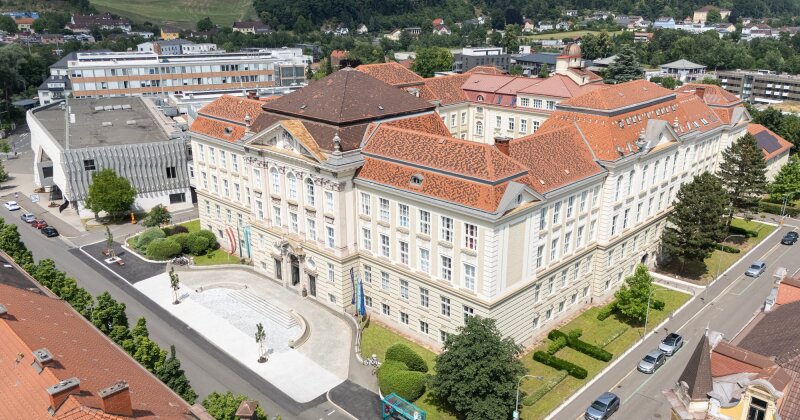Pipelines have long been the backbone of the petroleum industry, ensuring the safe and efficient transport of oil and gas across continents. As the sector evolves to include new energy carriers such as hydrogen and CO2, the demand for skilled engineers capable of managing complex, sustainable pipeline systems continues to grow.
To meet this industry need, the Technical University of Leoben (Montanuniversität Leoben) has developed a new Pipeline Engineering Certificate Program. The program is tailored for professionals seeking to strengthen their technical foundation and leadership skills across the entire pipeline life cycle, from design and construction to operation, automation, and project management.
Running from March to July 2026, this 5-month hybrid program, offered both online and on campus, combines academic excellence with real-world applications, making it an ideal choice for working professionals in the petroleum and energy sectors.
Bridging Academia and Industry
The energy industry is facing one of the most dynamic periods in its history, as operators adapt to stricter safety standards, digitalization, and the integration of low-carbon technologies. TU Leoben’s Department Geoenergy has long been a recognized center of excellence for petroleum and geoenergy engineering education, and this new program continues that tradition by aligning with the needs of today’s oil, gas, and hydrogen infrastructure projects.
“This program is designed to prepare engineers and decision-makers for the challenges of a rapidly evolving energy landscape. We focus on practical competence, interdisciplinary collaboration, and real-world problem solving,” said Dr. Riyaz Kharrat, Program Coordinator.
The curriculum was developed in cooperation with pipeline industry experts from manufacturing, operations, management, and consulting sectors to ensure that graduates are fully prepared to contribute immediately to field operations, design offices, and project execution teams.
Program Structure
The Pipeline Engineering Certificate Program consists of 12 modules (5 ECTS credits each) totaling 60 ECTS, which can be taken as a complete course or as individual modules. The content spans the full range of skills required for modern pipeline engineering:
- Basics of Pipeline Engineering and Design Fundamentals
- Pipeline Materials and Mechanical Design
- Pipeline System Design
- Pipeline Routing and Civil Design
- Station and Terminal Design and Equipment
- Pipeline Instrumentation and Automation
- Energy Pipeline Systems
- Pipeline Systems for Water and Similar Fluids
- Special Pipeline Systems (CO2, Hydrogen, Ammonia, Multiphase Flow)
- Pipeline Construction
- Pipeline Operation, Integrity Management, and Maintenance
- Pipeline Project Management
Each module integrates lectures, case studies, and simulation exercises. Participants learn how to apply international standards such as ASME, ISO, and EN, and how to optimize hydraulic design, material selection, corrosion protection, and automation in both conventional and emerging pipeline systems.
Applied Learning With an Industry Focus
A defining feature of the program is its balance between theoretical training and hands-on application. Through real-world case studies, participants examine topics such as onshore and offshore construction, system design optimization, station configuration, leak detection, and integrity management.
The program highlights the connection between traditional oil and gas transportation systems and new applications such as hydrogen pipelines, CO₂ transport for carbon capture and storage, and water or slurry systems. This approach prepares engineers to work at the intersection of conventional and renewable energy infrastructure.
Hybrid Format and Global Access
To accommodate professionals working in various regions, the program is delivered in a hybrid format, combining on-campus sessions in Leoben with virtual attendance options. Lectures are recorded to allow participants to review material at their convenience.
This format encourages participation from engineers worldwide, creating an international learning environment where students and instructors share diverse project experiences from different parts of the petroleum value chain.
Collaboration and Industry Partnerships
The program also seeks industry partners to participate in lectures, case studies, and project collaborations. This engagement strengthens the bridge between academia and practice and ensures that the program continues to reflect current challenges in pipeline design, operations, and asset management.
By fostering collaboration between the university and operators, EPC contractors, and service companies, the program provides a platform for knowledge exchange that benefits both participants and the wider energy community.
Program Details
Duration: 2 March–31 July 2026
Format: Hybrid (on-campus in Leoben, Austria, with possibility of online participation)
Full Program Fee: EUR 19,500
Individual Module Fee: EUR 2,200–4,400 per module
The schedule is designed to support career-integrated learning, allowing professionals to participate without interrupting their work commitments.
Advancing Pipeline Competence in a Changing Industry
By combining decades of petroleum engineering tradition with modern innovations and leveraging TU Leoben’s strong expertise in materials science, mechanical engineering, and related disciplines, the Pipeline Engineering Certificate Program offers an advanced learning opportunity for professionals who design, build, and manage the infrastructure that powers global energy systems.
Graduates will leave the program ready to contribute to safer, more efficient, and more sustainable pipeline operations, ensuring the continued reliability of energy transport in the oil and gas industry and beyond.
For inquiries, registration, or partnership opportunities: Visit our official website Phone: +43 3842 402-3051 E-Mail: pipeline.ulg@unileoben.ac.at





